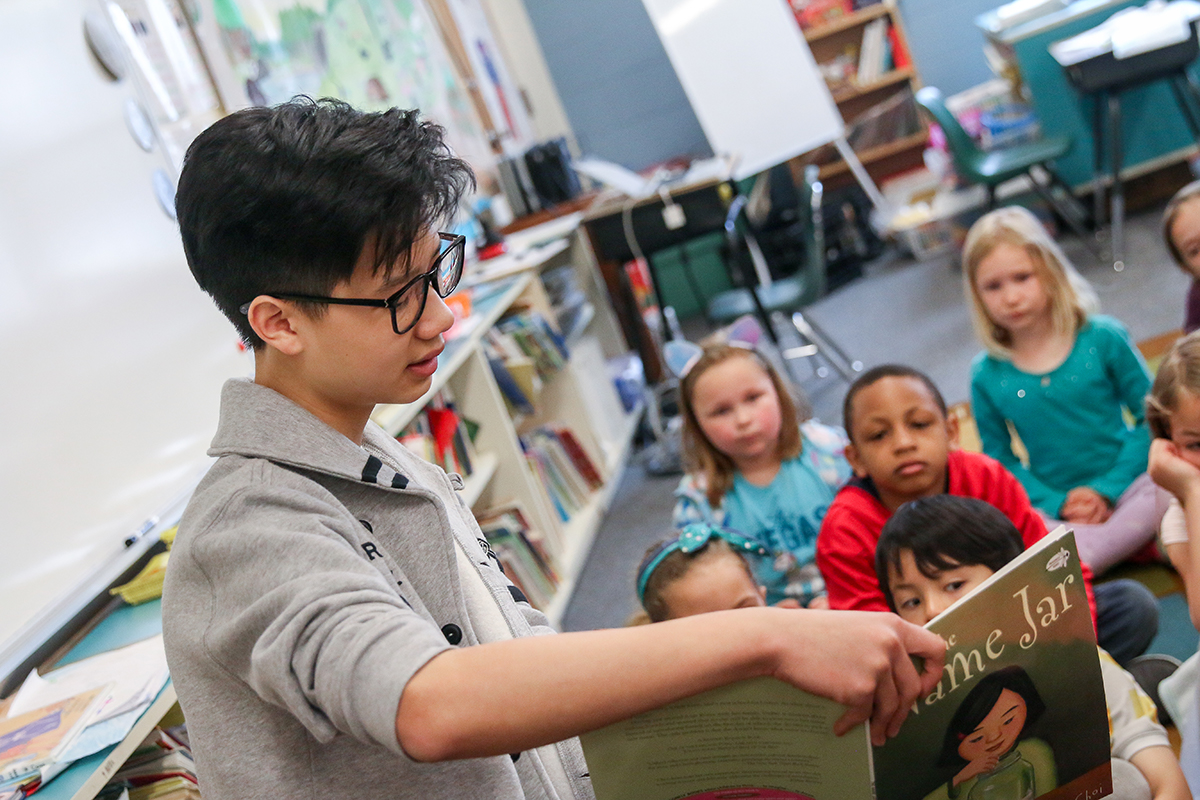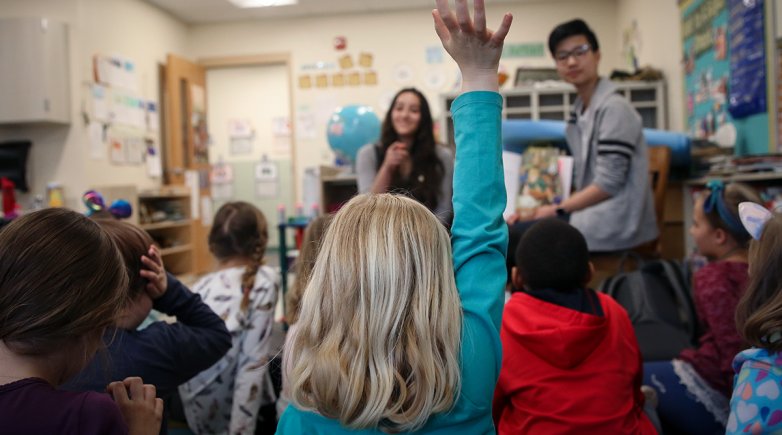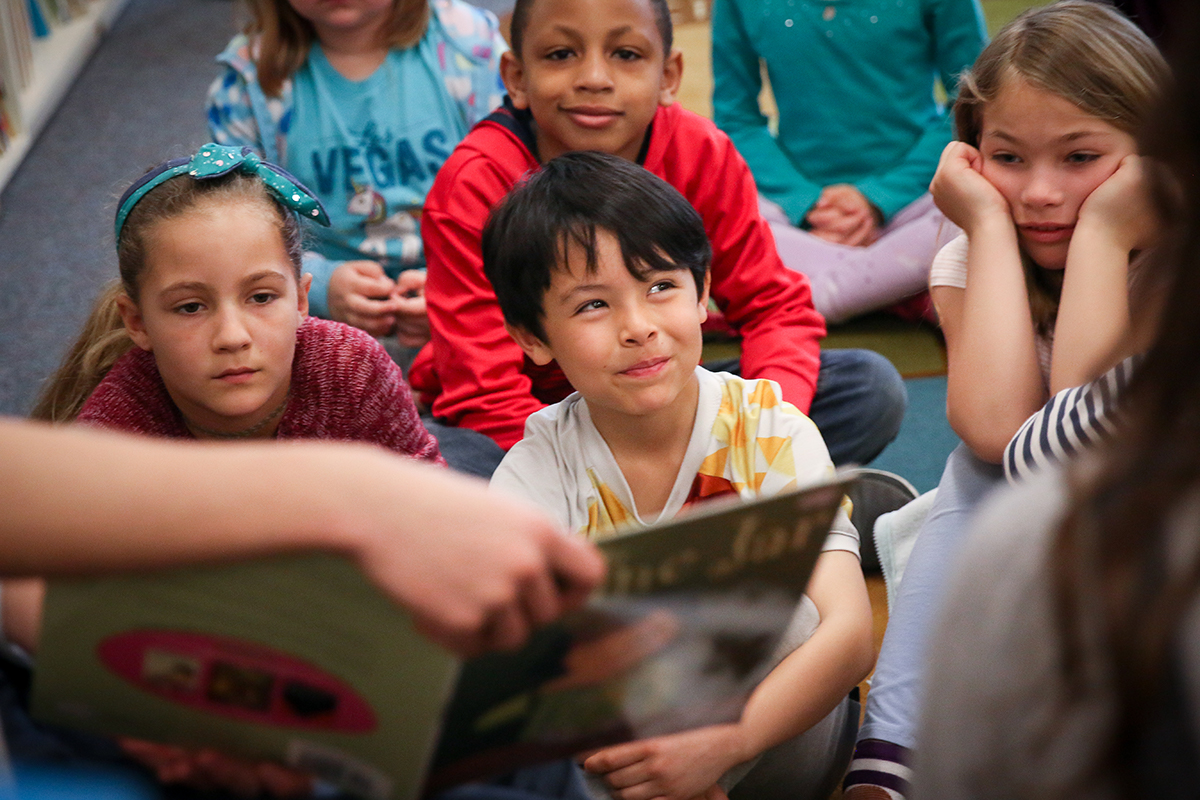Every book has a story
Exeter Student Service Organization program shares tales about diversity and inclusion with young readers.
A second-grader at Main Street School raises her hand to ask a question during story time with Phillips Exeter Academy students.
Otto Do ’22 takes a seat, book in hand, ready for class. He fidgets in his chair, waiting for the other students to join him.
In this classroom, the Harkness table is absent. A colorful rug adorned with the alphabet, upper and lower case, is in its place. The walls display completed projects with construction-paper labels such as “Amazing Woodland Animals” and “Visit to a Sugar House.”
Otto’s back in second grade.
Lisa Peters’ second-grade class at Main Street School in Exeter, specifically. Otto and Gabriella Shetreet ’21 have come to Ms. Peters’ classroom to read a book to the children and discuss elements of the story with them. Up and down the hallways, other PEA pairs are doing the same in kindergarten and first-grade classrooms.
These story-times and the books being shared have a common purpose: to celebrate diversity and inclusion and champion those in society who traditionally have been marginalized.

The program, launched in February and continuing throughout this spring, is the brainchild of PEA Physical Education Instructor Toyin Augustus and student leaders in the Exeter Student Service Organization. Together with Director of Service Learning Liz Reyes, they approached Main Street School Principal Steve Adler with the idea to read books whose themes deal with cultural differences and focus on underrepresented members of our community.
More than two dozen PEA readers have shared titles such as Mango, Abuela and Me, My Two Grannies and Dim Sum for Everyone across the K-through-second school. The PEA students choose the books they share.
“Each book speaks to a part of their identity that is historically marginalized or underrepresented in New Hampshire,” said Nana Esi Donkor ’20, who along with David Gonzalez ’20 has led the student effort. “We've had students from multiracial and multilingual and international cultures share their experiences. We also hope to elevate the LGBTQ+ and immigrant communities.”
“Growing up, I felt as if many of the books we read didn't represent my identities, and I didn't have any examples of older kids with my identities to look up to,” Gonzalez said. “I wanted to give to others what I did not have as a kid.”

